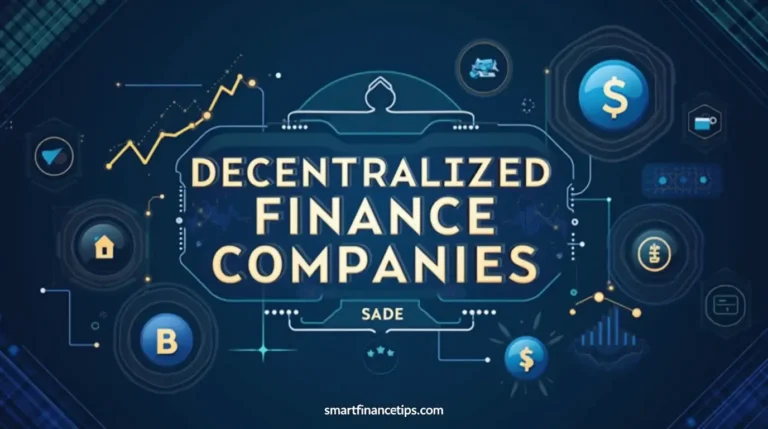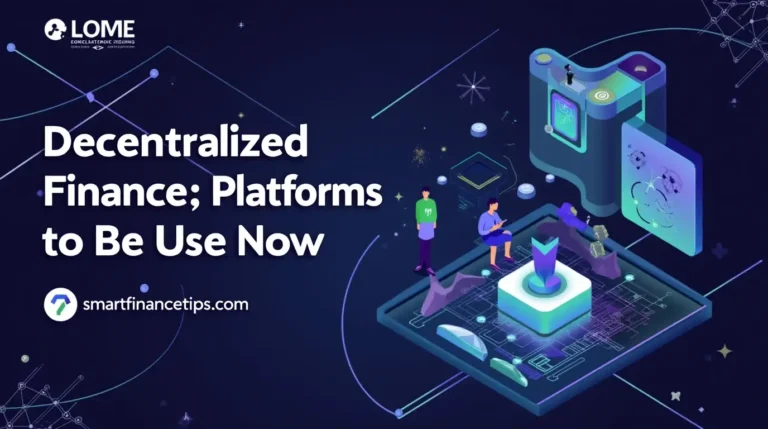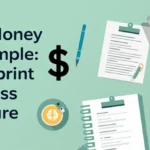The Best Fluffy Pancakes recipe you will fall in love with. Full of tips and tricks to help you make the best pancakes.
Table of Contents
Introduction to Decentralized Finance (DeFi)

Decentralized Finance Courses
Decentralized Finance, commonly referred to as DeFi, represents an innovative approach to financial services, allowing transactions and operations to be conducted without the need for traditional intermediaries such as banks or brokerage firms. At its core, DeFi utilizes blockchain technology—a distributed ledger that enhances security and transparency—enabling the execution of transactions in a peer-to-peer manner. This shift from conventional financial systems to decentralized models is fundamentally altering the way individuals and businesses engage with financial products.
One of the key components of DeFi is the use of smart contracts, which are self-executing contracts with the terms of the agreement directly written into code. Smart contracts automate processes and enforce rules on the blockchain without human intervention. This innovation minimizes the risk of errors or fraud, as transactions are verified by network participants rather than a central authority. Users can lend, borrow, trade, and earn interest on their assets directly, streamlining operations while reducing costs associated with intermediaries.
Crucially, cryptocurrencies play an essential role in the DeFi ecosystem. They serve as both a medium of exchange and a store of value, enabling users to access DeFi platforms with ease. Popular cryptocurrencies such as Ethereum facilitate various DeFi applications, including decentralized exchanges (DEXs), lending protocols, and stablecoins. These digital assets are vital for providing liquidity and ensuring seamless transactions, further strengthening DeFi’s position in reshaping traditional finance. learn to Investor-Ready Business Plans: How to Make Your Stand Out.
As DeFi continues to evolve, the integration of these technologies paves the way for a more inclusive financial landscape, where anyone with internet access can participate in a global economy. Understanding the foundational concepts of decentralized finance is crucial for grasping how this transformative ecosystem functions and its potential to redefine monetary interactions worldwide.
The Rise of Decentralized Finance Education
The emergence of Decentralized Finance (DeFi) has reshaped the landscape of modern finance, prompting a growing demand for knowledge in this innovative field. As more individuals and businesses explore the potential of DeFi, it has become increasingly essential to acquire a robust understanding of its principles, mechanisms, and applications. The complexity and rapid evolution of this sector underscore the necessity for educational programs tailored to equip learners with the skills needed to navigate the intricacies of DeFi.
Education around DeFi is crucial not only for individuals but also for professionals who seek to remain relevant in an ever-changing financial environment. Traditional finance relies on centralized systems governed by intermediaries. DeFi, on the other hand, offers a more democratized approach, where financial services are provided over blockchain networks without the need for intermediaries. This paradigm shift requires a new set of skills and knowledge to effectively understand its implications, tools, and technologies.
As traditional finance grapples with the disruptive force of DeFi, educational institutions are beginning to recognize the importance of integrating DeFi curricula. The current educational models must evolve to include topics such as smart contracts, liquidity pools, decentralized exchanges, and the risks and benefits associated with this financial revolution. Consequently, there is a rising trend of online courses, workshops, and certification programs being developed to facilitate comprehension of DeFi for various audiences, including developers, investors, and traditional finance professionals looking to expand their expertise.
Ultimately, the rise of decentralized finance education is not only crucial for individual empowerment but is also vital for ensuring that professionals can effectively bridge the gap between traditional finance and the innovative financial technologies emerging from the DeFi space. By investing in education related to DeFi, we can prepare for a future where finance is increasingly decentralized, transparent, and accessible to all.
Types of DeFi Courses Available

The landscape of decentralized finance (DeFi) education is continually evolving, reflecting the rapid advancements in the financial technology sector. Today, a diverse range of DeFi courses is available, catering to various learning preferences and objectives, with options from online platforms, university programs, and community-led initiatives. These courses are designed to provide learners with comprehensive knowledge of DeFi protocols, applications, and best practices.
Online platforms have gained immense popularity due to their accessibility and flexibility. Websites like Coursera, Udemy, and Khan Academy offer a myriad of courses that cover core concepts such as yield farming, liquidity pools, and decentralized exchanges. Many of these courses are structured to accommodate beginners, providing foundational knowledge, while others delve deeper into advanced topics, offering insights into smart contract development and DeFi risk management. Moreover, the format of these courses varies, with some featuring video lectures, quizzes, and interactive exercises, while others might offer live sessions with industry experts.
In addition to online learning, several universities now offer formal degree programs and specialized certifications focused on blockchain technology and DeFi. These academic courses typically emphasize theoretical frameworks and practical implementations, ensuring that students acquire the technical expertise required to navigate the complex DeFi landscape. University programs often include collaborative projects and case studies, allowing students to gain hands-on experience working with actual DeFi applications.
Community-led initiatives present another avenue for enthusiasts to deepen their understanding of decentralized finance. These programs frequently involve workshops, seminars, and hackathons led by experienced professionals and advocates in the finance technology sector. Participants benefit from networking opportunities, gaining insights from peers, and often collaborating on innovative DeFi projects. Overall, the various types of DeFi courses available reflect the increasing demand for knowledge in this transformative sector, enabling learners to enhance their skills in reshaping the future of finance.
Key Skills to Learn in DeFi Courses
Decentralized finance (DeFi) represents a paradigm shift in the financial sector, requiring participants to possess a diverse skill set. Enrolling in DeFi courses equips individuals with essential competencies that are vital for navigating this evolving landscape. One of the primary skills taught is a robust understanding of blockchain technology, which underpins all DeFi applications. Participants learn how blockchain works, its various consensus mechanisms, and its implications for transparency and security in financial transactions.
Another critical area of focus is cryptocurrency trading. As DeFi heavily relies on digital assets, comprehending market dynamics, trading strategies, and risk management becomes paramount. Courses often include modules that cover technical analysis and trading psychology, enabling learners to make informed decisions in volatile markets.
Risk assessment is an indispensable skill within DeFi courses, as participants learn to evaluate potential setbacks associated with investments and projects. This knowledge is crucial, given the decentralized nature of these platforms, which can expose users to higher risks than traditional finance. Understanding how to conduct due diligence on smart contracts, projects, and tokenomics is vital for minimizing risks.
Additionally, financial modeling is another key skill emphasized in DeFi education. Students learn to create models that simulate various financial scenarios, allowing them to predict potential returns or losses. This analytical ability plays a significant role in investment decisions and portfolio management.
Finally, smart contract development is an integral part of DeFi curricula. Aspiring developers explore programming languages like Solidity, which enable them to create and deploy their own smart contracts on platforms such as Ethereum. By gaining proficiency in these languages, individuals position themselves as valuable contributors in the rapidly expanding DeFi ecosystem.
Overall, acquiring these skills empowers individuals to thrive in the decentralized finance sector, providing them with the necessary tools to navigate its complexities and capitalize on emerging opportunities.
Benefits of Taking DeFi Courses

In recent years, decentralized finance (DeFi) has emerged as a transformative force in the financial ecosystem, leading to a growing interest in educational courses focused on this innovative sector. One of the primary benefits of enrolling in DeFi courses is the enhancement of career prospects. As organizations increasingly adopt blockchain technology and decentralized systems, the demand for skilled professionals in this area has skyrocketed. Completing DeFi courses can provide individuals with the necessary knowledge and skills, allowing them to position themselves favorably in a competitive job market.
Another significant advantage of taking DeFi courses lies in their ability to empower individuals to make informed investment decisions. With the rapid evolution of financial products and services within the DeFi space, investors must possess a solid understanding of the underlying mechanics to navigate this complex landscape effectively. DeFi courses typically cover a range of topics, including smart contracts, yield farming, and liquidity pools, which can help potential investors comprehend investment strategies and risk management techniques essential for making sound financial choices.
Moreover, these educational programs foster a deeper understanding of emerging financial technologies. Participants gain insights into the architecture of decentralized applications and the principles of blockchain, equipping them with the knowledge to assess the viability of various DeFi projects. Learning from industry experts or real-world case studies can further enhance this understanding, highlighting the successes and challenges faced by individuals and organizations that have embraced DeFi.
Real-world success stories serve as compelling motivation for prospective students. By examining how others have leveraged their DeFi education to achieve remarkable results—be it through career advancement, innovative project development, or strategic investments—students can appreciate the tangible benefits of taking these courses. Overall, exploring the benefits of taking DeFi courses illuminates their potential to shape not only individual futures but the broader financial landscape as well.
Challenges and Risks in Learning DeFi
Decentralized Finance (DeFi) has garnered significant attention over recent years, presenting an innovative approach to traditional finance. However, aspiring learners must navigate various challenges and risks when diving into this evolving domain. One primary concern is information overload. The sheer volume of resources available online can make it overwhelming for newcomers to discern credible and relevant materials. As the DeFi landscape continues to expand, learners may find themselves sifting through outdated or misleading information, requiring them to develop effective strategies for filtering content.
Moreover, the rapid pace of change in DeFi poses another challenge. New protocols, platforms, and regulations emerge frequently, necessitating continuous adaptation and learning. This dynamic environment can be daunting, particularly for individuals who are not accustomed to keeping pace with such a fast-moving industry. Consequently, learners may experience frustration or confusion, impeding their educational journey. Staying informed necessitates dedication and a proactive approach to seek the latest developments and practices associated with DeFi.
Security vulnerabilities are also a significant risk factor in the DeFi space. As users engage with various platforms and projects, they may unknowingly expose themselves to potential breaches or exploits. Scammers often target those new to the sector, employing tactics tailored to manipulate uninformed individuals. Therefore, it is crucial for learners to practice critical thinking and conduct thorough due diligence when selecting educational resources and investment opportunities. Evaluating the credibility of platforms, understanding their security protocols, and being aware of common scams will further mitigate risks. Recognizing these challenges is vital for anyone aiming to navigate the DeFi landscape successfully.
The Future of DeFi Courses

The landscape of decentralized finance (DeFi) is continuously evolving, necessitating an equally adaptive approach to education in this field. As technological innovations advance, the curricula for DeFi courses are likely to undergo significant transformations to encompass emerging concepts and tools. Traditional financial principles may blend with cutting-edge blockchain technology, which could lead to the introduction of new modules focusing on areas such as smart contracts, yield farming, and decentralized exchanges. Furthermore, educational institutions may seek to establish partnerships with leading blockchain firms to curate advanced programs that reflect real-world applications.
In addition to the curriculum modifications, the regulatory framework surrounding DeFi will play a crucial role in shaping educational offerings. As governments and regulatory bodies increasingly focus on the risks associated with cryptocurrencies and DeFi platforms, educational institutions may integrate compliance and risk management modules into their courses. This approach not only prepares students for the current regulatory environment but also equips them with the knowledge to navigate future regulatory challenges effectively.
The potential for formal recognition of DeFi qualifications is another factor influencing the future of DeFi education. As the industry matures, obtaining certifications or diplomas in DeFi may become essential for career advancement in finance-related fields. This demand could prompt educational organizations to apply for accreditation or endorsements from recognized regulatory entities, elevating the status of DeFi courses in the eyes of employers.
Technological advancements will also profoundly impact course offerings. Online learning platforms and emerging technologies, such as virtual reality and gamification, may enhance the way DeFi concepts are taught, making them more accessible and engaging. Moreover, as decentralized autonomous organizations (DAOs) gain traction, they may offer unique educational models, emphasizing community-driven learning. Such evolution in DeFi education will prepare the next generation of finance professionals for a digitally-driven financial ecosystem.
How to Choose the Right DeFi Course
As the decentralized finance (DeFi) sector continues to grow, selecting the right course to enhance your understanding of this innovative financial system becomes increasingly important. To make an informed decision, there are several key factors to consider. Firstly, examine the course content. You should ensure that the curriculum covers the fundamental concepts of DeFi, including blockchain technology, smart contracts, and various DeFi protocols. A comprehensive course will delve into both theoretical knowledge and practical application, allowing you to grasp the complexities of the DeFi landscape.
Next, consider the qualifications of the course instructors. Experienced professionals with a background in finance, blockchain technology, or cryptocurrency development will provide valuable insights. Research their credentials, industry involvement, and previous teaching experience to gauge their expertise. Many institutions will list instructor profiles, which can also include links to relevant work or publications.
Student reviews and testimonials offer another valuable perspective in selecting a DeFi course. Look for feedback regarding the clarity of the material, the effectiveness of the teaching methods, and the overall student experience. These reviews can give you a better understanding of the course’s strengths and weaknesses and can often highlight areas that may not be immediately apparent from the course description.
Cost-effectiveness is another critical consideration. While some courses may seem expensive, assess their value based on the content offered and the potential return on investment. More affordable options may suffice for beginners, whereas advanced learners might benefit from pricier, specialized programs. Finally, verify the credibility of the educational institution offering the DeFi course. Accreditation, partnerships, and industry recognition can provide confidence in the quality and legitimacy of the program. Ultimately, taking the time to research and compare options will empower you to choose a DeFi course that aligns with your personal and professional goals.
Conclusion: Embracing the DeFi Revolution
As we navigate the rapidly evolving landscape of finance, the significance of decentralized finance (DeFi) courses cannot be overstated. These educational programs are pivotal in equipping individuals with the knowledge and skills necessary to not only understand the fundamentals of DeFi but also participate actively in this transformative sector. Through comprehensive insights into blockchain technology, smart contracts, and decentralized applications, learners gain a well-rounded perspective on how traditional financial systems can be enhanced and disrupted.
The proliferation of these courses is indicative of a broader trend towards democratization in finance. By promoting transparency, reducing reliance on central authorities, and lowering barriers to entry, DeFi has the potential to revolutionize how we engage with money and value. This new paradigm invites individuals from diverse backgrounds to explore investment opportunities that were previously inaccessible. Consequently, a solid foundation in DeFi principles will empower individuals to make informed financial decisions and participate in a global economy that values inclusivity and innovation.
Continuous learning is essential in keeping pace with the advancements in technology and finance. As the DeFi landscape continues to mature, the complexity of its mechanisms will demand a committed approach to education. Engaging with DeFi courses offers a pathway to not only grasp emerging trends but also develop critical thinking skills that are vital in an intricate financial environment. Additionally, learners can leverage networking opportunities with industry leaders and peers to foster collaboration and innovation.
In conclusion, embracing the DeFi revolution through dedicated educational programs is indispensable for anyone keen on understanding the future of finance. Commit to ongoing learning, adapt to technological changes, and become an active participant in this dynamic sector. The future of money is evolving, and being informed is the first step towards thriving in this new financial era.








